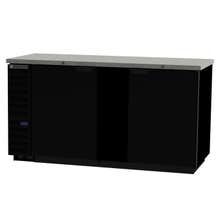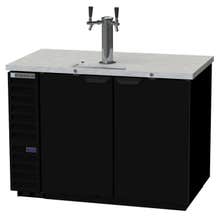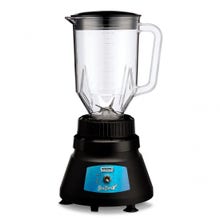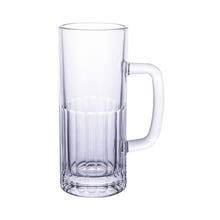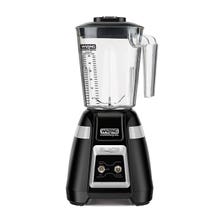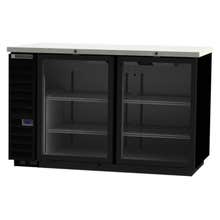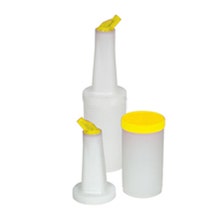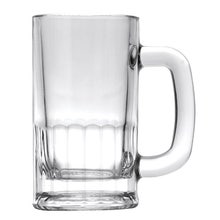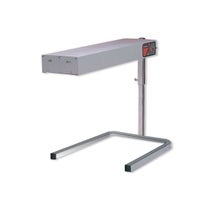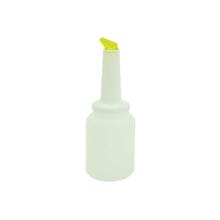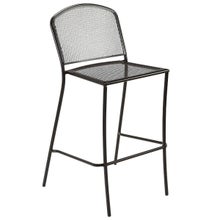How to Open a Bar: The Ultimate Guide for New Bar Owners
By: Matthew Berry • Feb. 21, 2023 • 10 minute read time
How to Open a Bar: The Ultimate Guide for New Bar Owners
Starting a bar can be intimidating, with many moving parts. In this post, we'll explore some key aspects you need to consider while planning to open your dream bar.
- Location—Like the number one rule of real estate Location, Location, Location is incredibly important to the success of your bar -- or any business, for that matter. Consider factors like foot traffic, competition, local regulations, and proximity to potential customers.
- Concept and Target Audience—What type of bar do you want to run? Who is your target audience? Answering these questions will help you decide about menu offerings, atmosphere, and overall brand identity. You should also consider your interests and experiences when developing your concept. You don't want to be stuck owning a business you don't like.
- Licenses and permits—Obtain all necessary licenses, permits, and certifications required to operate a bar, including a liquor license, food service permit, business license, and health department certification.
- Menu—The main thing to consider is whether you'll serve food. Serving food gives customers a reason to stay longer and make more purchases. It also provides a reason for people who don't drink alcohol to visit your business. Make sure your food and drink menus complement your concept and appeal to your target audience. A set year-round menu and some seasonal and limited-time items keep your offerings dynamic.
- Equipment and supplies—Invest in quality, reliable equipment and supplies that fit your budget.
- Staffing—When hiring employees for your bar, ensure they're friendly and knowledgeable and know to avoid overserving customers alcohol.
- Marketing and promotion—Consider the demand for different bars in the area you're interested in and the types of bars already there. What makes them successful? Develop a comprehensive marketing and promotion strategy to reach your target audience and generate buzz about your bar.
- Finances—Develop a realistic financial plan considering start-up costs, operational expenses, and potential revenue streams.
- Legal compliance—Ensure your bar complies with all applicable local, state, and federal laws and regulations, including health and safety codes, labor laws, and tax regulations.
Selecting a Location for your bar
Location is incredibly important when your business relies on customers physically visiting your store. If your bar is hard to find or in an inconvenient area, you'll have difficulty attracting enough customers to stay in business. Consider the following factors when choosing your bar's location:
- Foot traffic—Look for a location with many people shopping or dining out. Make sure your building is visible to people walking and driving by.
- Competition—Consider the level of competition in the area and how your bar will differentiate itself.
- Proximity to potential customers—Consider the surrounding area's demographics and who frequently visit nearby businesses. Are those groups the same as your target audience?
- Zoning regulations—Ensure your location is zoned for bar or restaurant use. If not, how easily can the zoning be changed, or will it be easier to find a different place?
- Accessibility and parking—Is there enough parking to accommodate the number of customers you'll need to be successful? Is your bar easy for people to find and get to? If your target audience uses public transportation, are you close enough to stops to make it worth their walk to you?
- Rent and lease terms—Make sure your rent or lease is favorable and in line with your budget.
- Building suitability—Is the building suitable for your bar's needs, and can it accommodate all the necessary equipment and supplies?
Create your concept and find your target audience
Creating a concept for your bar will guide you through many other processes on this list. A full-service bar, craft beer bar, sports bar, neighborhood bar, and high-end cocktail bar all have different equipment and supply needs and different target audiences.
Research the area where you want your bar located. What types of bars do well there? What makes them different? How can you make your bar different and attractive to customers? What kind of food, if any, will you serve?
Answering the preceding questions will help you develop your target audience, e.g., the people you want as customers. This will help you refine a more exact location for your bar and allow you to start developing marketing and promotion plans.
Apply for licenses and permits to open your bar
The types of licenses and permits you'll need to open a bar depends on your location. The process can be complex to navigate. We've listed some of the most common licenses and permits below. Be sure to consult with your local health department and government entities or a local business attorney to make sure you have everything you need to operate safely and legally.
- Business license—A business license is required to legally operate a business in most areas.
- Liquor license—A liquor license is needed to sell and serve alcohol in most locations.
- Food service permit—You need a food service permit to serve food.
- Health department permit—A health department permit is required for all food service establishments, including bars that serve food.
- Fire department permit—Your building may need to be inspected by your local fire department to ensure its safety for occupancy.
- Building and construction permit—You'll probably need a permit if you plan to renovate, remodel, or build anything else.
- Tax ID number—You'll need a tax ID number to pay taxes and report income. Your employees will also need it to file their taxes.
Create a menu for your new bar
Once you know the concept for your bar and who your target audience is, you'll be able to start developing your food and drink menus. Appealing menus are important to attracting and retaining your target audience and, ultimately, the success of your bar. Use the following steps to help create your new menu:
- Define your target audience—Determine who your customers will be and their preferences and tastes.
- Research your competition—Look at other bars in your area and see what food and drinks they offer.
- Consider your bar's concept and atmosphere—Make sure your menus match the feeling you hope to project on customers when they enter your bar.
- Make your menus mesh—Your food and beverage menus should complement one another. You don't have to have precise food and drink pairings (unless that's your concept), but you should have drinks that work with the food you serve and vice versa.


- Offer various options—Offer a range of drinks and food to appeal to a wide range of customers while staying within your theme.
- Price your menu appropriately—Make sure your prices are competitive and align with the quality of your offerings and service.
- Offer specials and promotions—Offer daily or weekly specials and promotions to entice customers to try new menu items.
- Get feedback—Ask customers for feedback on your menu and make changes as needed. Anonymous feedback is often a better way to get honest answers.
Select the right equipment and supplies for your new bar
After you create your initial menus, start thinking about the equipment and supplies you'll need to create them.
- Create a list of all the equipment and supplies you need. Think about what's on your menu and any special or seasonal items you want to offer. Think about everything from forks and napkins at the tables to shakers and bottle coolers at the bar to knives and ranges in the kitchen. Don't forget about the dish pit and storage room.
- Set a budget for your equipment and supplies and stick to it.
- Look for suppliers who offer high-quality equipment and supplies at reasonable prices.
- Compare prices from multiple suppliers to ensure you get the best deal.
- Look for energy-efficient equipment, which will save you money in the long run.
Read online reviews of different suppliers and equipment and ask other bar owners for recommendations. If you have employees in mind, ask them what brands they've used and their experiences with them. - If you need more money to purchase all the equipment and supplies upfront, consider financing options, such as leasing or renting.
- Consider extended warranties on critical or expensive equipment
Finding the right equipment and supplies at the right price will start your bar on the right foot.


How to staff your bar for success
By following best practices like those listed below, you can create a strong and effective staff that provides excellent customer service and contributes to a successful bar.
- Hire experienced staff—Look for experienced bartenders, servers, and managers who strongly understand the industry and provide excellent customer service.
- Create clear job descriptions—Define each position's responsibilities and expectations to ensure all your employees understand their roles and can perform their duties effectively. Resist adding new responsibilities to employees' jobs without talking to them first.
- Offer training programs—Provide comprehensive training programs to help employees understand your bar's menu offerings, customer service standards, and policies.
- Foster a positive work environment—Create a positive environment that supports employee well-being and encourages teamwork.
- Set realistic schedules—Develop schedules that consider your bar's hours, including opening and closing times, peak times, and staff availability.
- Offer competitive compensation and benefits—Provide competitive pay and benefits to attract and keep the best employees.
- Encourage employee feedback—Seek regular feedback from employees and make changes to improve the work environment and job satisfaction.
Market and promote your new bar to find customers
Once you've selected your location, created your menus, and hired your staff, you need to let customers know your bar is open for business. Creating a marketing and promotion plan will help you attract new customers. The following steps will help you get started.
- Develop a strong brand identity with a memorable logo, name, and tagline representing your bar and what makes it unique.
- Create a website and social media presence to showcase your bar and its offerings. A website gives your bar a professional-looking presence on the internet, making it easier to find.
- Social media accounts give you a place to interact with customers.
- Offer special events and promotions like live music or trivia nights.
- Advertise on social media, in local publications, and online.
Using these marketing and promotion strategies and more, you can reach your target audience and build a strong customer base for your new bar.
Develop a financial plan for your new bar
Creating a realistic financial plan for your bar will help you forecast a budget and attract investors if needed.
- Conduct a market analysis—Research the local market to understand your competition, target audience, and potential revenue streams.
- Determine start-up costs—Create a detailed list of all costs, including equipment, supplies, licenses, permits, marketing, and staffing expenses.
- Project future revenue—Establish revenue projections based on your market research, target audience, and menu offerings.
- Establish a budget—Create a budget that includes all projected expenses and revenue streams.
- Plan for unexpected expenses—Set aside funds for unforeseen expenses, such as repairs or marketing campaigns that perform less well than expected.


- Consider funding options - Explore funding options like loans and investments to help finance your bar's start-up costs.
- Monitor financial performance - Regularly monitor your bar's financial performance and make adjustments to ensure profitability.
Make sure your bar is legally compliant
As you start creating your business, make sure you're aware of all the legal obligations that creating and running a business entails. You may need to consult a local business attorney to make sure you've done everything you need to do.
- Research the specific laws and regulations applicable to your bar, including health and safety codes, labor laws, and tax regulations.
- Obtain all necessary permits, licenses, and certifications to operate a bar, such as liquor, food service, and health department permits.
- Create and implement policies and procedures that meet or exceed health and safety codes, such as sanitation and food handling practices.
- Train your staff on health and safety practices, and provide the necessary equipment and supplies to maintain compliance.
- Regularly review and update your policies and procedures to stay up to date with changes to laws and regulations.
Stay in touch with your business attorney even after starting the bar. They can help you navigate the complex legal landscape of running a bar.
Opening and running a bar can be tricky. The tips we've outlined here can help you navigate the rapids of bar ownership.
Share










